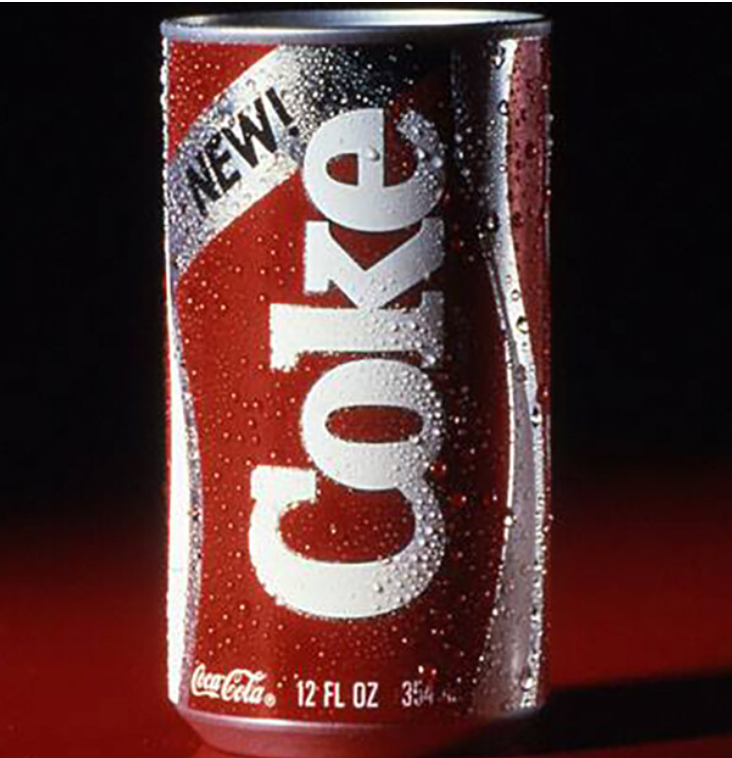Every brand faces challenges, but even the most successful ones have experienced significant failures.
Learning from these mistakes can provide valuable insights for businesses of all sizes. Let’s take a look at some famous brand failures and what takeaways we can gain.

New Coke
In 1985, Coca-Cola introduced a new formula called New Coke in an attempt to revitalize their brand. However, the response from consumers was overwhelmingly negative. Coke drinkers were fiercely loyal to the original taste, and the change sparked outrage and protests. This backlash highlighted the deep emotional attachment consumers had to the original Coke formula, leading Coca-Cola to quickly revert to their classic recipe.
The lesson? Don’t underestimate the emotional connection consumers have with your product. Any changes should be thoroughly researched and aligned with consumer preferences.

Colgate Kitchen Entrees
In the 1980s, Colgate attempted to diversify its product line by launching Colgate Kitchen Entrees—a range of frozen dinners. However, consumers couldn’t reconcile the brand’s association with toothpaste and oral hygiene products with ready-made meals. The disconnect between the brand’s core identity and the new product offering led to confusion among consumers and ultimately contributed to the failure of Colgate Kitchen Entrees.
The takeaway?
Stay true to your brand’s core services or product and ensure that any new ventures align with your brand’s established identity and consumer expectations.

Google+
Launched in 2011, Google+ was Google’s ambitious attempt to enter the social media market dominated by Facebook. Despite Google’s vast resources and technological prowess, Google+ struggled to attract and retain users. The platform faced challenges in differentiating itself from Facebook and failed to offer compelling reasons for users to switch platforms. Despite several redesigns and integrations with other Google services, Google+ never gained the same level of popularity as its competitors.
The key lesson? Success in one area of technology doesn’t guarantee success in another. It’s crucial to thoroughly understand market dynamics, user needs, and competition before launching new products or services.
If you take away anything form these examples, we hope it highlights the importance of market research, consumer insights, and staying true to your brand’s core values and identity. It's so important to carefully evaluate new ideas and innovations to ensure they align with consumer expectations and preferences. At Lume Creative, we’re experts at guiding businesses through the twists and turns of brand management. We offer strategic insights and solutions to help you navigate the complexities of market dynamics with ease and confidence. Let's chat about your goals and see how we can help!
Keep Exploring













